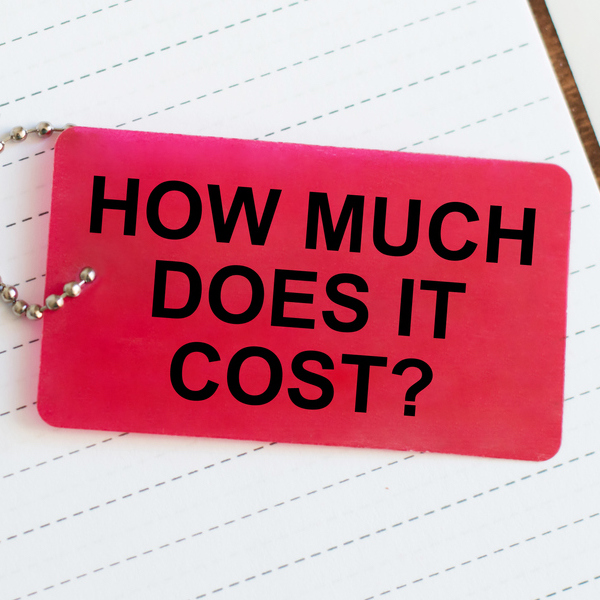It’s that time of the year when budgets renew, priorities change, and organizations refocus. And with big goals looming large ahead, you may be looking for an outside creative partner to help deliver expertise, guidance, or relief for your team. As you sit down to write an RFP, how can you be sure you’re attracting the right partners to respond? Take a look at our guide below to help you attract quality agency talent.
#1. Remember that the courting is mutual.
As much as you’re looking to vet agency partners, those agency partners are vetting you, too. Think through what your identified goals, budgets, and timelines (both for the proposal and project) convey to a potential partner. If you’re too vague, or overly aggressive with requirements, you may dissuade quality agencies from taking the time to submit a proposal for consideration. In fact, many agencies, like Grafik, have their own prospect scorecard, which enables us to qualify an opportunity before communicating intent to bid.
#2. Casting a wider net only ensures more fish, not better ones.
When distributing an RFP, consider limiting the number of agencies invited to respond. Most quality agencies will not take the time to respond to “cattle calls.” If you’re looking for a specific skill set or expertise in a certain industry, start your research there, conduct discovery calls, and then limit your proposal pool to no more than six. If you don’t like what you see at that point, then consider expanding.
#3. Ask for guidance where you need it.
We realize you may need recommendations on certain aspects of your project (e.g., technologies, budgets, timeline feasibility, etc.), but it is better to identify those needs in the RFP rather than let agencies draw their own conclusions. In fact, communicating your expectations up front will save everyone a lot of valuable time and effort, especially if your project requires a specific turnaround. Consider language that states your ideal goals surrounding timeline and budget but feel free to let agencies know you’re open to suggestions. If you’re looking for proposals to help justify the budget internally, be honest about that, too. Quality agencies can help you benchmark needs and budgets but there are many paths to delivery, so be clear and straightforward in order to make the most out of your investment.
#4. Let’s talk specifics.
As you can imagine, everyone has a different definition of the word “branding,” not to mention wildly different expectations when it comes to websites. The more you can share about your goals and the role of internal and external stakeholders, the more guidance a quality agency can provide. If you have a super involved Board, outline that Board meetings will be a requirement of the internal approval process. If your team has limited capabilities surrounding content management, let us know so we can build in the appropriate amount of time needed to train your team.
#5. Be available.
If you’re going to take the time to put an RFP into the universe, be prepared for the influx of inbound questions—especially if you are casting a wider net. Giving agencies the time to meet with you and learn more about your goals and challenges only sets you up for more meaningful proposals and recommendations. Avoid email-only Q&A and blanket Q&A sessions, as most agencies will only scratch the surface when they know responses will be shared with all potential respondents. Being available to discuss the RFP is a common courtesy, especially if you’re asking for speculative thinking or creative as part of the agency response.
#6. Think twice before you ask for spec work.
In addition to the amount of time and effort that goes into proposal development, asking a potential agency partner to quickly ideate a solution based on a couple of pages from an RFP is….well, cruel. Plus, it doesn’t guarantee that what you’re seeing is indicative of what the agency would produce for you after being properly onboarded. Agencies recognize that spec strategy or creative will be required from time to time, but if you’re going to make it a mandatory exercise, consider compensating respondents for their time with a capped effort, or limit the agency pool to no more than three to make sure it is worthwhile for everyone involved.
#7. Don’t overcomplicate your requirements
Consider what’s crucial before asking agencies to provide extensive team resumes, full organizational charts, current client lists, or private financial statements. If you’re going to read them, and they impact your decision-making process, then by all means ask, but don’t just add requirements to check boxes. As mentioned above, as much as you’re vetting an agency partner, they’re vetting you, too, so be kind and considerate.
#8. Remember to close the loop.
We recognize that the selection process takes time, and that it can be difficult to keep up with all the post-submission RFP status questions that flood in. Even if the answer is “no,” communicating your decision in a clear and timely manner to each agency that spent time preparing a proposal is always better than no response at all. And if it is a no, make sure you deliver feedback regarding your decision-making process—what was it that sealed the deal? This feedback is not only helpful but also welcomed by agencies.
At the end of the day, it really comes down to being as transparent as possible about your goals and selection process. Be honest, be clear, and welcome the opportunity for real partner relationships that can scale with the needs of your organization. As the saying goes, good help is hard to find, so make sure your RFP is setting you up to find it.






